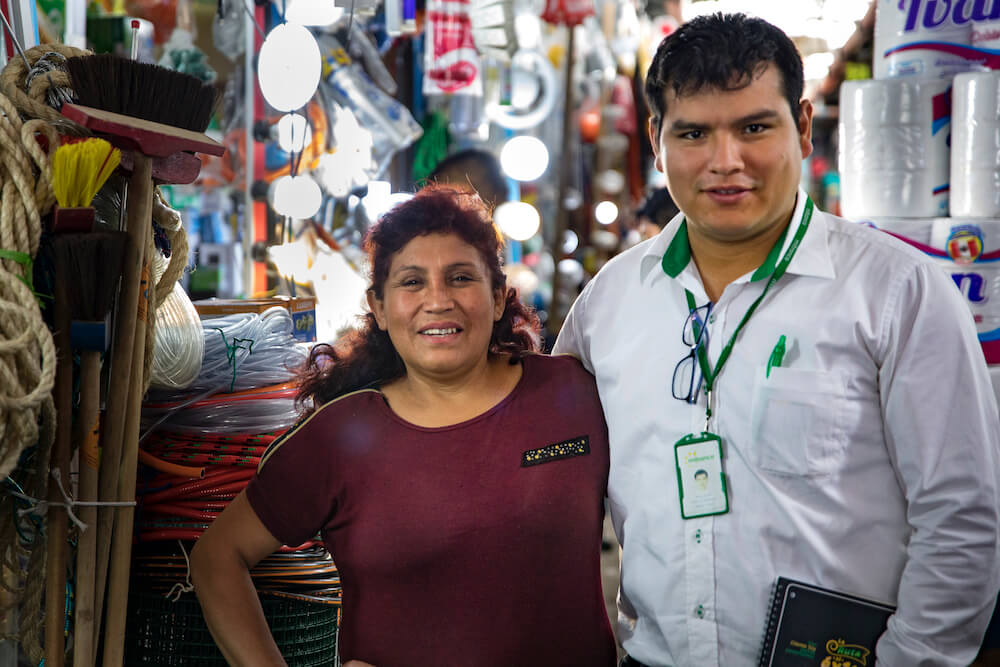
When CFI launched the Smart Campaign in 2009, global financial upheaval had revealed huge cracks in financial consumer protections around the world, including new challenges for the inclusive finance sector. A lack of comprehensive consumer protection regulation covering microfinance institutions across the globe put vulnerable clients at risk. The industry faced inconsistent regulations at the country level and did not have a globally accepted framework describing appropriate consumer protection from the provider perspective. Steeped in an over-indebtedness crisis that threatened both the operations and reputations of microfinance institutions, the industry had an imperative to accelerate and amplify its individual consumer protection actions.
The Client Protection Principles emerged as a shared set of responsible financial inclusion guidelines that would become the bedrock of the Client Protection Standards and Smart Certification, and the infrastructure needed to support the implementation of good consumer protection practices: technical know-how through a community of experts and tools, access to funding through support facilities, and evaluations and capacity building for both providers and regulators. Since 2013, when CFI began certifying financial service providers (FSPs) that met adequate standards in their treatment of clients, 135 institutions in over 40 countries have earned Smart Certification, collectively serving over 62 million people. We also conducted over 120 trainings and 300 assessments, produced hundreds of tools for FSPs, and hosted convenings for thousands of financial inclusion professionals around the world, all part of a multi-pronged strategy to raise awareness about the importance of consumer protection and improve providers’ practices.
Smart Certification has been awarded to 135 institutions serving 62 million people in 40 countries.
A cohesive landscape of investors and providers facilitated collaboration, enabled the uptake of certification, and created conditions in which clients could better access a range of financial services with confidence. Providers were motivated to undergo evaluations and seek certification in order to differentiate themselves as responsible actors, strengthen internal processes, attract investors, and improve relationships with regulators. Investors adopted components of the standards into their due diligence and social impact assessments. Regulators have relied on our Model Legal Framework (now known as the Handbook on Consumer Protection for Inclusive Finance), which was recently updated for digital financial services. Regulators also used CFI’s research to design policies that balance client risk and market sustainability while taking the voices of both providers and clients into account. (For more resources and past consumer protection knowledge products, visit the Smart Campaign project page on the CFI website.)
Changing Times Raise New Concerns for Client Protection
New actors, fintechs, and their investors are launching ventures aimed at serving unbanked and underbanked customers, hoping to use technology to scale their offerings beyond the reach of physical branches. Fintechs have entered the ecosystem at a rapid rate, particularly in growing markets, such as Kenya and Cambodia. Some of these companies have emerged under a loose banner of “inclusive fintech,” but many new entrants have different motivations and experiences than the providers that have traditionally sought to provide financial services to low-income customers. Fintechs that aim to serve this vulnerable segment may have good intentions, but many are also driven by different forces, including pressure to scale quickly in competitive markets, and commercial investors that are motivated more by returns than by development goals. As financial inclusion slogans increasingly appear in the lexicons of fintechs, these companies are largely unaccountable for their claims and, as non-bank entities, do not fall under existing consumer protection regulations.
Of course, many fintechs have genuine ambitions to advance inclusive finance and want to do everything in their power to prevent harm to their clients. Yet they face limits in what they can control due to fragmentation of the financial product delivery value chain. For instance, one credit product might involve an array of different companies: one that designs the credit model, another company contracted for collections, a bank that provides the capital, and the mobile network operator (MNO) that controls the digital rails. Because of this fragmentation, FSPs can find themselves as deal takers with limited influence over the practices of some partners.
Fintechs face limits in what they can control due to value chain fragmentation.
The new landscape compounds the challenges faced by regulators to improve consumer protection measures. Consumer protection is higher on the agenda than ever, as evidenced by findings of the annual Global Microscope, an index that assesses the enabling environment for financial access in 55 countries across the globe, and the agenda set by the Alliance for Financial Inclusion (AFI). Nonetheless, the progress that many countries have made to bolster consumer protection regulations and enforcement does not apply to new digital business models – either because these non-bank, non-microfinance entities fall outside current frameworks or because regulation has not yet addressed risks unique to digital financial services.
Building a Responsible Digital Ecosystem
As the inclusive finance ecosystem fragments and becomes more complex, CFI will shift its approach from codes of conduct and provider certification to focus on regulation, market conduct, and consumer research. With the closure of the Smart Campaign, our partners, SPTF and CERISE, will manage the Client Protection Standards going forward as a part of the Universal Standards for Social Performance. CFI will continue to manage the Client Protection Principles, which we believe can form the base of a shared language to understand consumer risks across the range of inclusive finance providers. CFI will continue to collaborate by engaging in research and learning that can be translated by our partners into practical tools for FSPs.
CFI will continue to collaborate by engaging in research and learning that can be translated into practical tools for FSPs.
To begin addressing the digitalization of financial services for the poor and the increasing complexity of the sector, CFI conducted research on digital credit (including the Client Protection Standards for Digital Credit) to provide digital lenders with a shared set of criteria to assess their practices. CFI convened researchers, investors, and providers to discuss and debate good practices. These consultations revealed the following lessons:
- The relative importance of the Client Protection Principles are shifting in a digital world. Principle Six (Privacy of Client Data) has become a key consideration, while Principle Five (Fair and Respectful Treatment of Clients) may look vastly different when a business model leans toward tech over touch.
- Protection by design better aligns with fintech’s faster product development and deployment cycles. Previously, the CPPs looked at established products and institutions, but the pace at which fintech products are brought to market and refined based on customer use shifts attention to the product development cycle as a crucial opportunity to embed client protection.
- Consumer protection needs an awareness boost. The Smart Campaign put consumer protection on the radar of FSPs by raising awareness of unintended consequences and convening stakeholders to identify practical solutions. It’s time to open this conversation to new investors and providers that are concerned about alarming trends in markets like Kenya, for example, to raise awareness again. In a rapidly evolving digital financial system, it is more important than ever to anticipate, understand, and catalog risks to consumers — activities that will form the basis of CFI’s consumer protection agenda going forward.
We’d like to thank the Mastercard Foundation for partnering with us on this journey.










